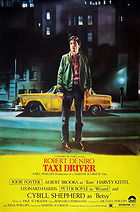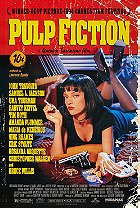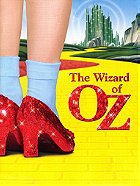Martin Scorsese's searing portrait of loneliness and violence on the mean streets of New York, is an American original. De Niro's Travis Bickle, the insomniac taxi driver of the title, is an angry, alienated Vietnam veteran who takes a job driving a taxi on the night shift... It remains one of the quintessential films of 1970s American cinema, a brooding blast of modern gothic cinema that boils over in madness and self destruction. Scorsese's uncompromising vision and vivid direction and a fierce, fearless performance by De Niro have inspired countless young filmmakers and actors in the decades since its release."
The movie I've watched the most and loved over the years for the most constantly shifting reasons. It's so emblazoned in my psyche that I really can't imagine what life would be like without it. There's just something about how Michael Chapman's burnt out cinematography captures the demonic dance of the neon city lights. How Bernard Herman's score mixes high class glamour with gritty street-level militarization. How De Niro's performance balances perfectly observed urban white boy alienation with alluringly/repulsively antisocial impusles. How the editing is both pathologically hypnotic and terrifyingly confrontational. There's something wicked, contradictory, and unhealthy about this movie, but then there's something wicked, contradictory, and unhealthy about post-industrial American society. I don't know exactly what that sick thing is, but whatever it is, it's certainly buried within this film somewhere. As far as I'm concerned everyone involved never came even remotely close to matching this achievement ever again, and that's saying something.
All reviews -
Movies (53)
Taxi Driver review
 Posted : 11 years, 11 months ago on 17 July 2013 04:40
(A review of Taxi Driver)
Posted : 11 years, 11 months ago on 17 July 2013 04:40
(A review of Taxi Driver) 0 comments, Reply to this entry
0 comments, Reply to this entry
Pulp Fiction review
 Posted : 11 years, 11 months ago on 17 July 2013 04:38
(A review of Pulp Fiction)
Posted : 11 years, 11 months ago on 17 July 2013 04:38
(A review of Pulp Fiction)Quentin Tarantino's Pulp Fiction is a film both monumental and immediately accessible, a 2 1/2-hour picture whose energy never flags. It's the movie equivalent of that rare sort of novel where you find yourself checking to see how many pages are left and hoping there are more, not fewer. The tone is darkly comic in the face of almost operatic violence, though only the most squeamish of viewers will be put off. With Tarantino we get violence as part of an impish vision of life in which anything can happen -- and does... Pulp Fiction is a picture that will stand up to repeat viewings.
 0 comments, Reply to this entry
0 comments, Reply to this entry
The Wizard of Oz review
 Posted : 11 years, 11 months ago on 17 July 2013 04:34
(A review of The Wizard of Oz)
Posted : 11 years, 11 months ago on 17 July 2013 04:34
(A review of The Wizard of Oz)One of the most beloved movies of all time, The Wizard of Oz, at almost seventy five years old, is unique among motion pictures in that it mirrors our longings and imaginations as children.
The experience is brought to us by a series of elements that we are all familiar with. The dreams that Dorothy sings about and the adventure that she follows, along with the songs she sings, all seem to mirror our yearnings as children. She imagines a bigger place where her problems do not linger and she is free to explore the world. She imagines a place where people listen to what she has to say, somewhere where she is important, somewhere where she is understood. She imagines a world where her troubles melt like lemondrops. We can all relate. Children sit in their rooms or in their yards, and played, imagining a place where they can interact with characters, a colorful world bigger than our small, confined worlds.
I think that The Wizard of Oz represents a brief moment of happiness in Judy Garland’s life. We know of her problems with studio executives that put her through exhausting schedules and used drugs to get her going in the morning then put her to sleep at night. We all know the legends of her mental and physical problems that dogged her most of her life but The Wizard of Oz sees her at a moment in a life that seems perfect, just as her star was rising and her problems really began. There is a poignancy in that, and that is why I think the casting of Shirley Temple in the role would have been a mistake. By 1939, Temple was the biggest star in the world her presence in the movie would have been too much, she would have stood out and we would only have seen Temple, not Dorothy Gale.
If Judy Garland gives the film its center than the production design, awe-inspiring in 1939, is the perfect backdrop. In these early musicals filmed on a soundstage, it is not hard to spot where the soundstage ends. Some have seen that as a flaw but it adds to the dreamlike quality of the film. The matte paintings behind the sets add to the storybook quality of the film. The fact that we’re in a dream makes it okay that the special effects look a little hasty. That was the genius of the screenplay, that and to establish the Oz characters as characters that Dorothy knows in Kansas. In our dreams we often see people and events that have recently occurred in out lives, but this is the first time it has ever successfully been expressed in a movie. In particular, the notion that Professor Marvel keeps showing up as various characters in the dream.
The search for something over the rainbow is something every child experiences. The imagination and the desire to solve your problems as a child is stronger than any other epoch of one’s lifespan.
The experience is brought to us by a series of elements that we are all familiar with. The dreams that Dorothy sings about and the adventure that she follows, along with the songs she sings, all seem to mirror our yearnings as children. She imagines a bigger place where her problems do not linger and she is free to explore the world. She imagines a place where people listen to what she has to say, somewhere where she is important, somewhere where she is understood. She imagines a world where her troubles melt like lemondrops. We can all relate. Children sit in their rooms or in their yards, and played, imagining a place where they can interact with characters, a colorful world bigger than our small, confined worlds.
I think that The Wizard of Oz represents a brief moment of happiness in Judy Garland’s life. We know of her problems with studio executives that put her through exhausting schedules and used drugs to get her going in the morning then put her to sleep at night. We all know the legends of her mental and physical problems that dogged her most of her life but The Wizard of Oz sees her at a moment in a life that seems perfect, just as her star was rising and her problems really began. There is a poignancy in that, and that is why I think the casting of Shirley Temple in the role would have been a mistake. By 1939, Temple was the biggest star in the world her presence in the movie would have been too much, she would have stood out and we would only have seen Temple, not Dorothy Gale.
If Judy Garland gives the film its center than the production design, awe-inspiring in 1939, is the perfect backdrop. In these early musicals filmed on a soundstage, it is not hard to spot where the soundstage ends. Some have seen that as a flaw but it adds to the dreamlike quality of the film. The matte paintings behind the sets add to the storybook quality of the film. The fact that we’re in a dream makes it okay that the special effects look a little hasty. That was the genius of the screenplay, that and to establish the Oz characters as characters that Dorothy knows in Kansas. In our dreams we often see people and events that have recently occurred in out lives, but this is the first time it has ever successfully been expressed in a movie. In particular, the notion that Professor Marvel keeps showing up as various characters in the dream.
The search for something over the rainbow is something every child experiences. The imagination and the desire to solve your problems as a child is stronger than any other epoch of one’s lifespan.
 0 comments, Reply to this entry
0 comments, Reply to this entry
 Login
Login
 Home
Home 26 Lists
26 Lists 53 Reviews
53 Reviews Collections
Collections